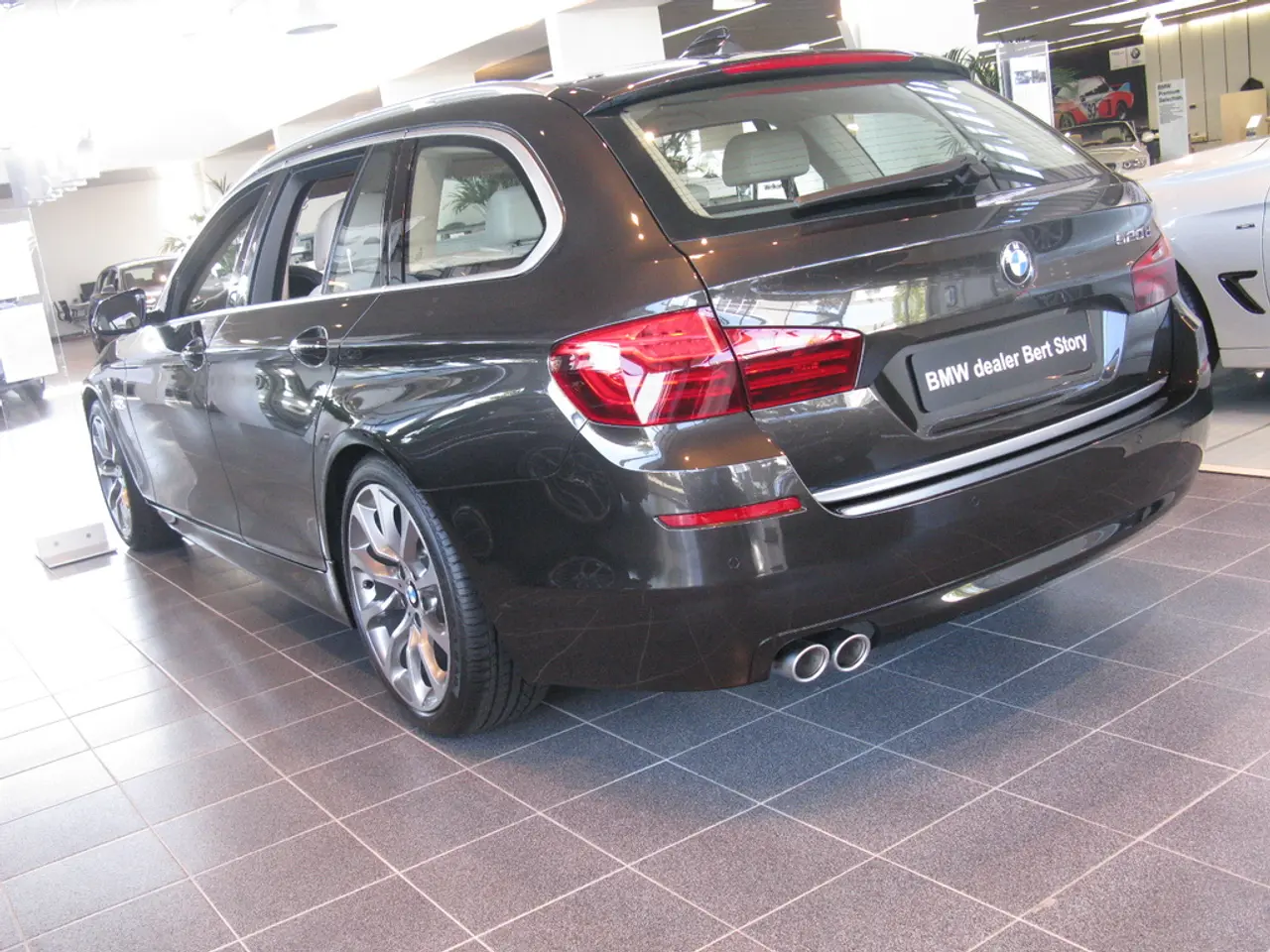Exploring the French Market for Electric Vehicles with More Than 100 kW Charging Capacity: A Comprehensive Look at the 2025 Fast-Charging Sector Landscape
France's high-power electric vehicle (EV) charging market is undergoing a significant transformation, with several key players making strides in providing reliable and accessible charging solutions.
Rising Players on Highways
Two notable companies, Electra and Fastned, are making waves in high-power charging on highways. Electra, with 323 charging points and 98 MW, and Fastned, boasting 265 charging points and 80 MW, are steadily expanding their networks.
Tesla leads in the number of charging points near highways in France, with 2453 charging points and 574 MW. Powerdot, the second-largest operator, has 1369 charging points and 200 MW. ENGIE Vianeo follows closely with 632 charging points and 190 MW. TotalEnergies, the clear market leader, boasts 850 charging points and 380 MW of power on highways. IONITY, a joint venture of major car manufacturers, has 688 charging points and 241 MW in high-power charging on highways.
The Need for Improvement
Despite these advancements, challenges remain. Public awareness about retail and rural stations is low, often leading to underuse. Better signage and mobile integration can help address this issue. Consistent availability, particularly in rural areas, requires investment in predictive maintenance and better uptime tracking. Many retail and rural chargers haven't yet reached 98% uptime, which affects public trust and convenience.
Shift in Focus
With full highway coverage nearly complete, attention is now shifting to where people live, shop, and work. Tesla is growing in off-motorway areas, especially where premium access is in demand. TotalEnergies is diversifying its presence with strategically placed near-highway stations.
Expansion Beyond Highways
Companies like Electra, in partnership with TSG, are investing in expanding fast charging infrastructure outside highway rest areas. They aim to install 70 new charging hubs by 2025 primarily in France, Belgium, Italy, and Spain, focusing on accessible and user-oriented network solutions beyond highways.
IECharge partners with local retailers and municipalities to offer affordable, high-power charging in underserved areas. Lidl is turning its car parks into charging hubs, promoting accessibility in suburbs and smaller towns.
The Future of EV Charging
A unified payment system across all stations and roaming platforms could encourage broader adoption. EVBoosters Executive Search, a trusted partner for Europe's leading EV Charging and e-Mobility companies since 2018, plays a crucial role in this evolution. Smart expansion, using data to predict traffic patterns and EV adoption, helps avoid over- or under-investment in charging infrastructure.
France's high-power EV charging market is evolving, with a growing focus on achieving balance and reliability. Companies are striving to improve availability and public awareness, making electric vehicle travel more convenient and accessible than ever before. Usage pattern differences between urban, rural, and motorway sites are being carefully considered to ensure a comprehensive and efficient charging network for all.
Read also:
- Understanding Hemorrhagic Gastroenteritis: Key Facts
- Trump's Policies: Tariffs, AI, Surveillance, and Possible Martial Law
- Expanded Community Health Involvement by CK Birla Hospitals, Jaipur, Maintained Through Consistent Outreach Programs Across Rajasthan
- Abdominal Fat Accumulation: Causes and Strategies for Reduction








